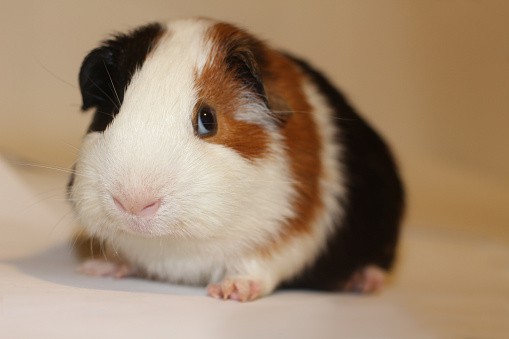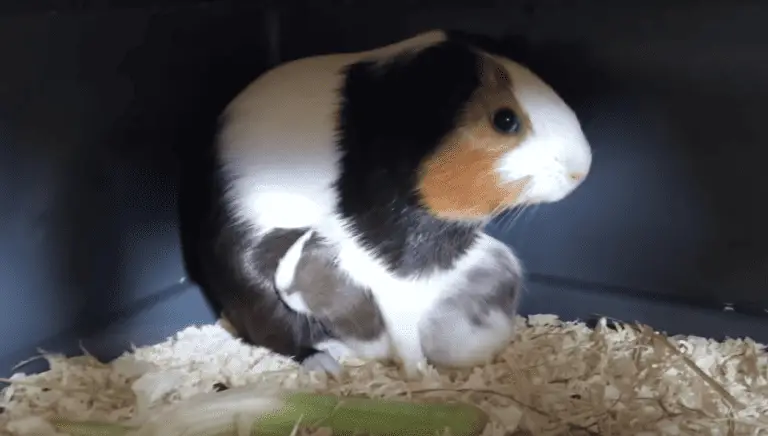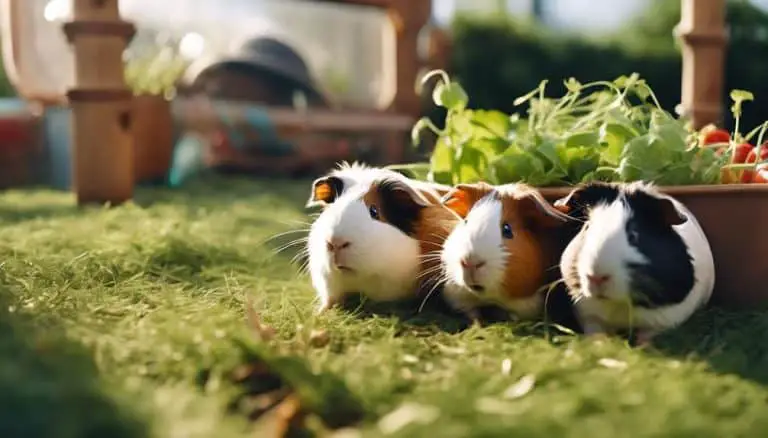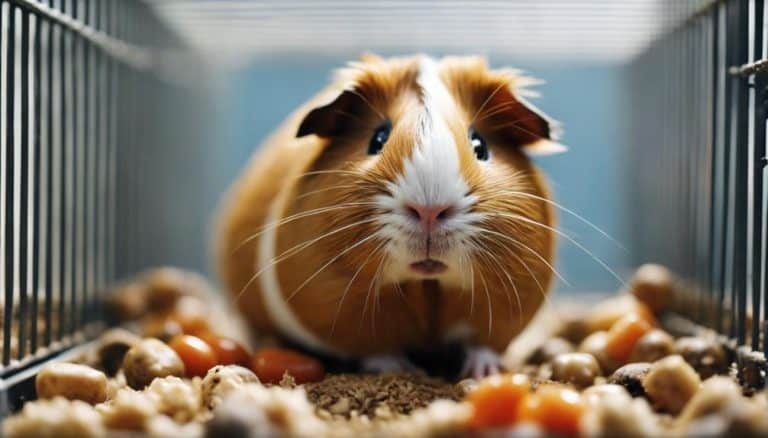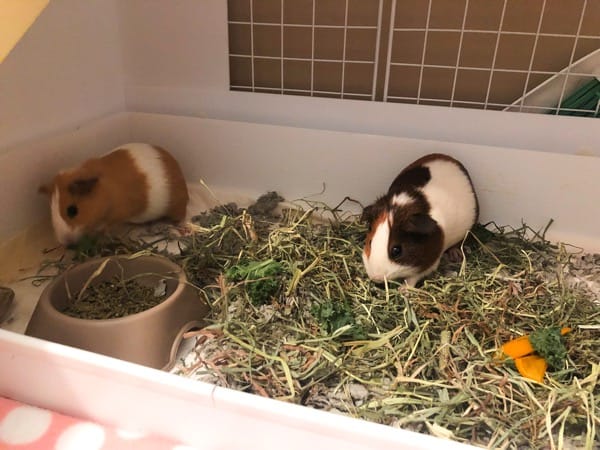What Guinea Pig Can Eat
Hey, let’s chat about what guinea pigs can munch on! We’ve got the lowdown on the good stuff for our little buddies. We know how crucial it is to keep our furry pals healthy and satisfied, so understanding their dietary needs is key.
From the essential vitamin C to the importance of hay and fresh veggies, we’ve got the inside scoop on what keeps them thriving. No need to stress, we’re here to guide you in creating a diet that’ll have your guinea pig living their best life.
So, let’s dive in and learn about the tasty treats and essential nutrients that’ll keep our guinea pigs happy and thriving.
Essential Components of a Guinea Pig’s Diet
We know that hay is crucial for maintaining a guinea pig’s dental health.
Fresh vegetables are important for providing essential nutrients, especially vitamin C.
Ensuring water accessibility through sipper bottles or heavy ceramic bowls is also vital for their well-being.
Additionally, regular veterinary check-ups can help determine and address any specific dietary needs to ensure our little companions are receiving the best nutrition.
Hay for Dental Health
While hay is commonly associated with providing essential nutrients to guinea pigs, it also plays a crucial role in maintaining their dental health. Unlimited access to timothy or other low-calcium hay is vital for wearing down their continuously growing teeth, promoting proper dental health.
Grass hay aids digestion and helps control tooth growth, making it an essential component of a guinea pig’s diet for dental health. Timothy or orchard hay is recommended for guinea pigs over a year old, as it contributes to maintaining proper dental health.
Hay should make up around 80% of a guinea pig’s diet, ensuring their teeth are at the correct length and shape. Incorporating hay into their diet not only provides essential nutrients but also supports their dental health, ensuring freedom of movement and comfort for guinea pigs.
Vitamin C Necessity
Guinea pigs require vitamin C as an essential component of their diet to maintain overall health and prevent scurvy. Just like primates, they need vitamin C for skin, joint, and mucosal surface development and maintenance. Without enough vitamin C, guinea pigs can suffer from swollen joints, poor mobility, and skin infections.
They need 10-50 mg of vitamin C per day, depending on their condition. To meet this need, include fresh vegetables high in vitamin C, such as leafy greens, in their diet. It’s important to note that vitamin C breaks down quickly in water, so it’s best to give them vitamin C tablets or liquid directly.
Ensuring a fresh diet with adequate vitamin C is crucial for the overall health and well-being of guinea pigs.
Fresh Vegetables Importance
Discussing the importance of including fresh vegetables in a guinea pig’s diet is vital for their overall health and well-being. Fresh vegetables are essential for guinea pigs as they provide crucial nutrients like vitamin C, supporting their healthy diet.
By incorporating a variety of leafy greens such as romaine lettuce, cabbage, and kale, we can ensure that our guinea pigs receive the necessary vitamins and minerals they need to thrive. Including vegetables high in vitamin C, such as peppers and broccoli, is crucial for preventing health issues like scurvy and promoting a healthy lifestyle for our furry friends.
Providing a daily serving of fresh vegetables, equivalent to 1/2 to 1 cup per guinea pig, is an important step in supporting their overall well-being and happiness.
Water Accessibility Methods
Adequate water accessibility is essential for maintaining a guinea pig’s health and well-being, ensuring they remain hydrated and supporting their overall nutritional needs. Guinea pigs should always have access to fresh, clean drinking water. This can be provided through sipper bottles or heavy ceramic bowls.
Sipper bottles are popular as they keep the water clean and prevent spillage, while heavy ceramic bowls are suitable because they’re less likely to be tipped over and are easy to clean. Water bottles and bowls should be checked and cleaned daily to ensure they’re free from obstructions and debris, facilitating easy access for guinea pigs.
Veterinary Check-Ups Significance
We regularly consult veterinarians to ensure our guinea pigs receive the essential components of their diet, including hay, pellets, and fresh vegetables, in the right proportions to maintain their health and well-being.
Veterinary check-ups are crucial for monitoring our guinea pigs’ diet to ensure they’re getting the correct amount of vitamin C. Our furry friends’ well-being is our priority, and these check-ups provide us with the necessary guidance to keep them healthy.
Feeding your guinea pigs the right food is essential for their overall health, and regular veterinary check-ups help us make sure we’re on the right track.
Fresh vegetables high in vitamin C are an important part of their diet, and the expertise of our veterinarian ensures we’re providing the best care for our beloved guinea pigs.
Crucial Nutrients for Guinea Pigs
While guinea pigs require various nutrients for their well-being, one of the most crucial is vitamin C. This essential vitamin helps prevent health issues like scurvy in guinea pigs. In addition to vitamin C, a balanced diet of fresh vegetables high in this nutrient, along with grass hay and pellets, is vital to avoid obesity, dental disease, bladder stones, and gastrointestinal problems. Here’s a breakdown of crucial nutrients for guinea pigs:
| Nutrient | Importance | Sources |
|---|---|---|
| Vitamin C | Prevents scurvy and supports immunity | Fresh vegetables such as peppers and broccoli |
| Fiber | Aids digestion and controls tooth growth | Grass hay (timothy or orchard for older guinea pigs, alfalfa for younger ones) |
| Protein | Supports muscle and tissue repair | High-quality guinea pig pellets |
Ensuring guinea pigs have access to these crucial nutrients is essential for their overall health and well-being.
Safe and Healthy Vegetables for Guinea Pigs
When choosing vegetables for our guinea pigs, it’s important to prioritize those that are safe and healthy for their specific dietary needs. We want our guinea pigs to have the freedom to enjoy a variety of fresh, well-washed, leafy greens and colored vegetables that are high in vitamin C, such as bell peppers, tomatoes, and turnips.
Providing them with these nutritious options ensures a healthy guinea pig diet and promotes their overall well-being. Additionally, we can introduce fresh, organically grown greens gradually, aiming for a teacup amount per guinea pig per day, and including a variety of 5-6 different greens to meet their vitamin C needs.
Proper Hydration for Guinea Pigs
To ensure our guinea pigs stay properly hydrated, we must provide them with fresh, clean water continuously. In addition to water, a balanced diet for your guinea pigs should include a variety of fresh greens rich in vitamin C, which is essential for their overall health and hydration. Here is a table that outlines the importance of hydration and the components of a guinea pig’s diet:
| Hydration Importance | Components of Guinea Pig’s Diet |
|---|---|
| Prevents health issues like scurvy | 85-90% hay and grass for fiber |
| Maintains healthy skin and joints | Fresh vegetables high in vitamin C |
| Supports mucosal surfaces | High-quality pellets for essential nutrients |
Special Dietary Considerations for Guinea Pigs
The special dietary considerations for guinea pigs include ensuring they receive adequate vitamin C, monitoring their hay intake, and adjusting their diet based on specific health conditions. It’s crucial to pay attention to their diet to keep them healthy and happy.
Here are some important things to consider:
- Vitamin C: Make sure they get plenty of fresh greens to meet their vitamin C needs.
- Hay: Monitor their hay intake to ensure it makes up around 80% of their diet for optimal dental and digestive health.
- Pelleted food: Choose high-quality pelleted food to supplement their diet and provide essential nutrients.
Conclusion
In conclusion, understanding the dietary needs of guinea pigs is essential for their health and well-being. By providing them with a balanced diet that includes hay, fresh vegetables, and sources of vitamin C, we can ensure that our furry friends are happy and thriving.
With the right knowledge and guidance, we can create a diet that meets their nutritional needs and keeps them healthy for years to come.



